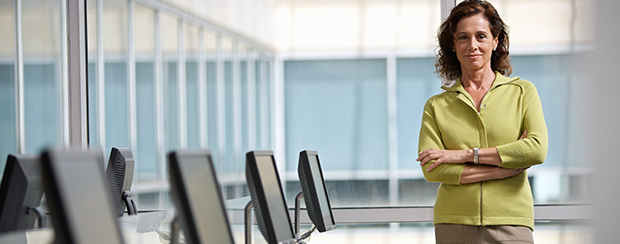Having the right technology, machinery, vehicles and other equipment for your company is important for productivity and for keeping a step ahead of the competition. But large cash outlays for these types of purchases can strain a small company’s resources and put important purchases out of financial reach.
To overcome this challenge, many businesses turn to equipment leasing to access what they need. In fact, nearly three-quarters (72%) of companies acquire equipment through leasing and other forms of financing rather than buying it outright, according to the Equipment Leasing & Finance Foundation.
Use these Frequently Asked Questions (FAQs) to help make your leasing vs. buying decision.
What is leasing?
When you lease an item you pay for the right to use it over a set period of time. The lease breaks the price of an item into monthly payments over a time period such as two years, three to five years, or longer for some large items. In most cases you don’t actually own the item during this time period or at the end of the lease.
What are the advantages of leasing?
One of the main advantages of a lease is that it enables your company to access the items it needs without using its cash. By making monthly payments, your company can pay for the use of the leased item as it helps your company earn money. Leases also do not typically require a cash down payment.
Another huge advantage of leasing is that it makes it easy for your company to keep up with changing technology. If your company leases the technology it needs—anything from servers to printers to point-of-sale systems to machinery—for two or three years, you can easily upgrade to the most current technology at the end of the lease. You also do not need to worry about disposal or sale of your old equipment.
What are some of the potential drawbacks?
Higher cost overall may be the biggest downside to leasing since it will cost your company more over the term of the lease than it would to purchase the item outright. A lease may also prohibit you from making changes, upgrades or modifications to an item that could enhance its performance or help it better serve your specific needs. If you no longer need the item, you may still have to make payments for the entire lease period, depending on the lease terms.
Can I deduct lease payments from my taxes?
Yes. Lease payments are generally treated like other tax-deductible operating expenses such as payroll. Since you do not own the equipment, you typically cannot deduct the depreciation of the item on your taxes, as you can do with something you own. Talking to your accountant about the tax implications of a lease is a good idea before you make a decision.
Do leases help me keep up with new technology?
One of the greatest potential benefits of leasing is that it enables your company to easily upgrade equipment without having to worry about costs sunk into what you own already. You can easily switch to the latest technology at the end of your lease based on your company’s needs.
Can I buy equipment that I am leasing?
Leases typically include an option to purchase the equipment during the lease and at the end of the lease. The purchase price for the item will usually be set at what is called “fair market value,” meaning what the value is considered to be at the time of the purchase. Or, in some leases, a price is set for purchase as part of the lease terms. Before entering into a lease agreement, ask which price applies to your lease.
Is leasing the same as renting?
Leases are typically longer-term arrangements. Renting is usually done for shorter-term usage.
What clauses or details should I ask about?
You may be able to negotiate the terms of a lease, such as its length or the services that come with it (such as training and maintenance). You should also ask about fees associated with inability to make your lease payments and the terms associated with the end of your lease. Some leasing companies require you to alert them several months before your lease ends if you plan to return an item; otherwise, they might automatically extend the lease.
Leasing and buying each have pros and cons, and the best option for your company will be based on your needs, the item you need to purchase, your cash reserves and many other factors.
Print this article




0 Comments